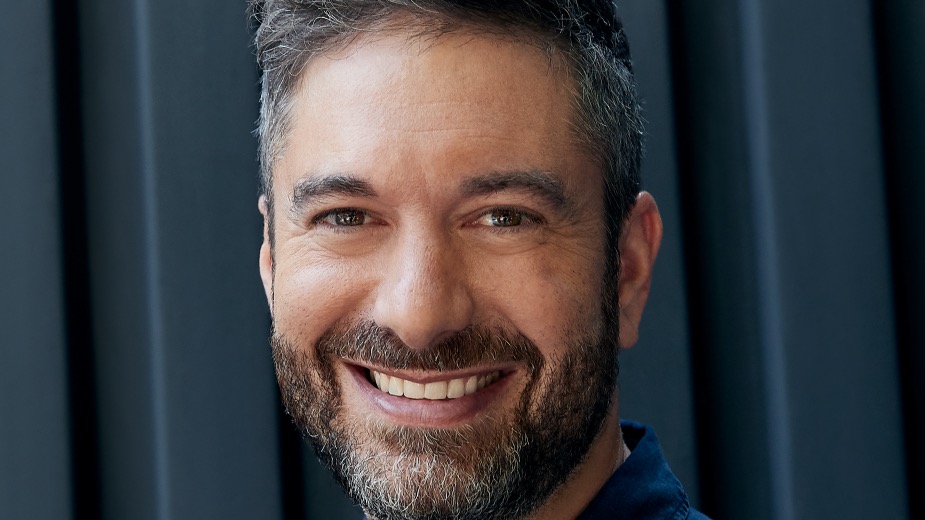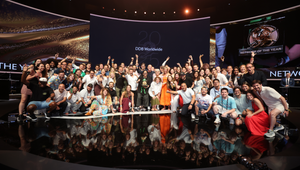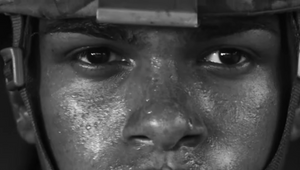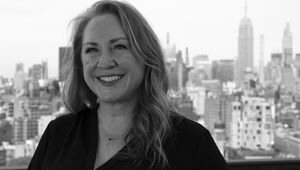
DDB Tastemakers: Ari Weiss

The best creativity comes from collaboration. That collaboration knows no borders in a post-pandemic world opening up networks to connect like never before without the barriers of geographic borders. At DDB, this has allowed their Global Creative Council, a group of the network's finest creative leaders, to reach new heights in 2022. Chaired by Global Chief Creative Officer Ari Weiss, this year the Global Creative Council has reached gender parity with 15 women and 15 men forming the taskforce whose duty is to shape and propel the network's creative product.
In this series, we'll be meeting the tastemakers of DDB and hear their take on modern creativity, what they're inspired by and what to expect from this year's major award shows.
With this new, revitalised Global Creative Council, what are you looking to bring to DDB's creative product?
Ari> The more voices we have in the room, the more diverse our thinking. Diversity of thought is the catalyst for creativity. Finding unexpected solutions to problems is what makes brilliant ideas so brilliant. If everyone approaches the problem from the same perspective, the brilliance is limited as are the results.
How is the 'Unexpected Works' ethos shaping your approach to building and leading this GCC?
Ari> Unexpected Works forces you to evaluate the relationship between being breakthrough and driving efficacy. If you solve a problem like everyone else, you'll never beat your competition. The same goes for agency infrastructure. For decades creative networks have approached their global creative leadership the same way: The most awarded senior creatives drive the agenda. The problem with this is that the most awarded senior creatives in our industry often approach the problems from a similar perspective. Instead of insulating this group, we want to bring more diverse perspectives to the leadership conversation. At DDB, we've opened up the Global Creative Council (GCC) to creative voices from every corner of our network. It doesn't matter where you come from or how long you've been in the business; as long as you exhibit creative brilliance, you are eligible for a seat at our table.
When you were pulling this team of tastemakers together, what were you looking for?
Ari> Creative brilliance represented by as many different perspectives as possible.
For the first time, the GCC will have gender parity - how do you think that will change the conversation and what do you think that will bring to the creative product?
Ari> The greater the diversity, the greater the chance of finding Unexpected Works.
DDB's approach to categorising creative work combines heart and head, data and emotion. What's your view on how you can integrate the two - and how do you navigate situations when your data and your gut are saying totally different things?
Ari> All great creative solutions reconcile some sort of tension. Heart, head, data and emotion all can appear to be at odds with one another. That is until a common thread is discovered. When you find this common thread, it's undeniable. The thinking immediately shifts from being at odds with itself to being in support of itself. It's a beautiful thing. It's how we get to Unexpected Works.
We're coming up to Cannes, of course! How has this new look council helped shape ideas and entries differently to previous years?
Ari> I've seen a shift in how we talk about creativity. Our GCC used to be focused on "Can you believe how creative this ad is?" It's now shifted to "Can you believe how creative this business solution is?"
It's still early days, but the diversity of thinking, the range of ideas, and how they're coming to life have absolutely blown me away this year.
What trends do you expect to see at this year's festival of creativity?
Ari> I hope to see more unadulterated fun. We've become a bit serious as an industry. There is no doubt that purpose plays a critical role in any modern marketing plan, but we have to remember we’re uninvited guests in most situations. As uninvited guests we have to bring exquisite value to our engagements. The world is so very heavy right now. I don’t know about you, but I really appreciate guests that help lift the mood these days.
When it comes to taste and the kinds of creativity we're exposed to, algorithms are increasingly choosing what we see and even what gets made. When it comes to forming your creative sensibilities, how important is it to push beyond what an algorithm serves up? And how do you do it?
Ari> The algorithm is nothing more than a delivery device. Our responsibility as an industry is to create solutions to business problems that consumers want to engage with in a meaningful way. Don't hate the algorithm, use it to make your creativity even more creative.
This series is called the 'Tastemakers' - I'm curious to know if working with this new council has influenced your taste or thinking in any surprising ways? What creative work (whether work from the agencies or art/creativity from their markets) have they shown you that has really bowled you over?
Ari> My favorite part of this job is that I am surprised by the extremely talented people in our network on a daily basis. The only thing formulaic about our approach is that we use creativity to unlock business solutions that most people would never see coming. I'm particularly proud of twelve pieces from around the network this year, which you can see here. You'll notice that no two are identical in approach or execution…but they all garnered serious business results. I guess you could call them Unexpected Works.















